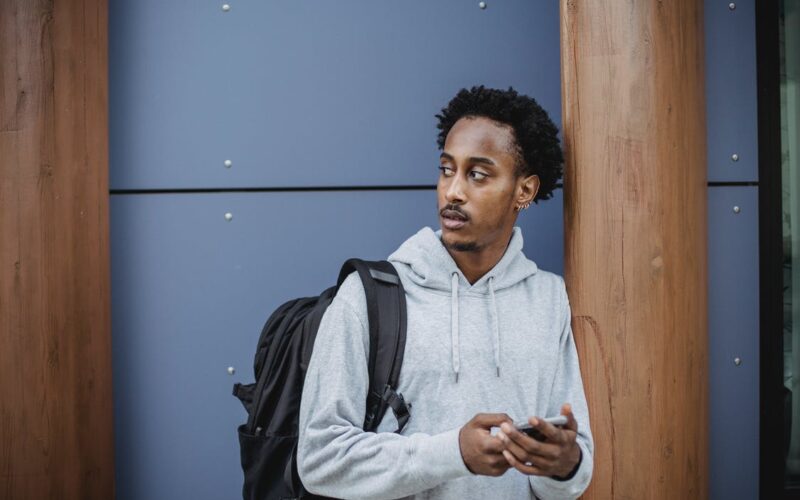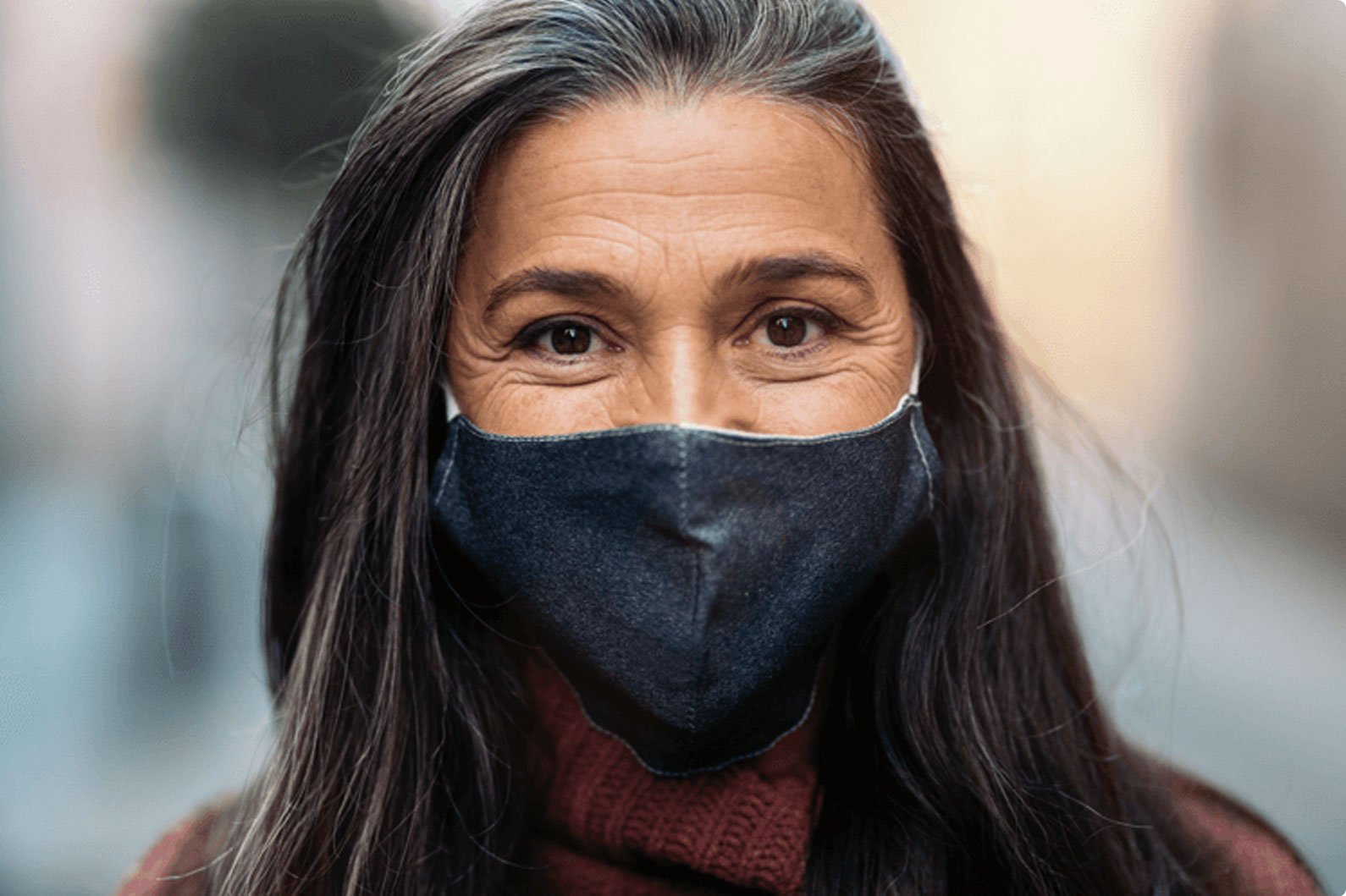While it’s something that can affect anyone, at any age, social anxiety disorder in teens is something we need to talk about. In fact, according to the National Institute of Mental Health (NIMH), social anxiety disorder (SAD) affects nearly 32% of adolescents aged 13 to 18 years old in the United States.
Knowing the signs of social anxiety in a teenager, understanding the causes, how it affects them, and what treatments are available are all important. Social anxiety disorder in teens is a treatable condition, so understanding as much as you can about it is key. Read on to learn more.
Signs & Symptoms of Teen Social Anxiety
Every parent hopes their child is happy and healthy well past the adolescent years and into their adult life. Despite our best intentions, though, many teenagers today experience feelings of social anxiety.
Online therapy for parents
Being a parent is hard. Talk to an experienced, licensed Talkspace therapist today.
Several factors are contributors to social anxiety in teens these days. Being aware of the social anxiety symptoms can be beneficial if you’re trying to navigate how to help your teenager in the best way possible and which teen therapy is right for them.
Some common signs and symptoms of social anxiety disorder in teens include:
- Extreme difficulty having normal conversations with other people
- Avoiding social settings where attention will be focused on them
- Finding it hard to talk to others
- Having anxiety knowing they need to interact with other people — particularly if they don’t know those people well
- Not being able to catch their breath
- Feelings of self-consciousness
- Feeling uncomfortable around others
- Having an intense fear of being embarrassed
- Blanking during social events
- Feeling embarrassed during interactions with other people
- Being very critical of themself after social events and social interaction
- Worrying excessively for days, or even weeks, before social or public events
- Having an intense fear of being judged
- Low self-esteem
- Avoiding social situations and public places
- Shaking, sweating, blushing, or having an accelerated heartbeat in social settings
- Finding it difficult to make friends
- Finding it challenging to maintain relationships
- Having stomachaches or nausea when being around others
- Feeling confused in social settings
- Having diarrhea or muscle tension around others
Causes of Social Anxiety in Teens
Social anxiety disorder in teens can be caused by any number of environmental or biological factors. Both inherited traits as well as learned behavior can be contributors. Another known cause of social anxiety can be an overactive amygdala.
“For teens, social anxiety can be quite prevalent in terms of performance, fear of judgment and when any opportunity for comparison or fear of failure surfaces. Typically, the burden of stress is realized with age, but it is pronounced earlier in our teens as the pressure to catch up and to feel successful becomes clearer in response to COVID and other external stressors.”
- Genetically predisposed: Genetic predisposition for social anxiety is possible. That said, it’s not entirely understood if the link between social anxiety and families is due to learned behavior or if it’s truly genetics.
- Environment: Environmental factors can play a part in developing teen social anxiety disorder. This can be due to parents who exhibit phobias or extreme anxiety about social situations, which can then be passed on to teenage children. Another factor might be overprotective parents, which can lead to children not being able to fully navigate a social setting without feelings of anxiety.
- Past events: Teenagers who experience social situations in their past that caused embarrassment might develop social anxiety as a result.
- Amygdala: The amygdala is the part of the brain that controls our fear response. When it’s overactive, it can be a contributing factor to social anxiety disorder. In people with an overactive amygdala, an extremely sensitive or heightened fear response can lead to higher levels of anxiety, particularly during social situations.
Other risk factors for social anxiety in teens can include:
- A teenager’s individual temperament
- Feeling insecure
- New social situations
“A range of anxiety is normal for teens as they experience puberty and hormonal changes, but it can feel particularly vulnerable if the causes are not easily identified. It’s a good idea to be aware of growth and development when trying to understand anxiety.”
How Does Social Anxiety Affect a Teenager?
All of us will feel nervous or anxious at one time or another in our life. In fact, it’s normal to be intimidated about certain situations.
Things like giving presentations in school, going on a job interview, trying out for a sports team, giving a performance, or meeting new people can all induce feelings of anxiety. However, when those nerves culminate to the point of full-blown social phobia or they cause prolonged anxiety about everyday activities and situations, something more might be going on.
Social anxiety can affect virtually every aspect of a young person’s life. Teenagers with social anxiety might have difficulty:
- Walking into a crowded room
- Using a public bathroom
- Going to class
- Eating in front of others
- Starting conversations
- Going to parties or social gatherings
- Dating
- Making eye contact
- Talking to strangers
- Giving speeches
How Can I Help My Teenager with Social Anxiety?
There are several things you can do to help your teenager manage their social anxiety. First and foremost, be patient and understanding. Encourage your teen to try some of the following self-help tips to cope with their social anxiety
Focus on others instead of themselves
Social anxiety can cause teenagers to feel lost in their own discomfort and fear. It can make it difficult for them to focus on others around them because they’re really focused on their own fears. The problem with this is it can result in actually creating more stress and anxiety.
Encourage your teen to start a conversation or join one already going on around them. It can help them relax and might even allow them to stop hyper focusing on their own anxieties for a moment or two. Remind them that their anxiety is feeding off the negative thoughts they’re having.
Challenge the negative thoughts
Negative thoughts can become intrusive for somebody with social anxiety disorder. Fear can be a ruling factor in how they interact in social situations. They might be afraid they’ll embarrass themselves, or they can fear they’ll look dumb in front of their peers or large groups of people.
Negative thought patterns can be a trap. They can grow, until your teen even begins to catastrophize a social event in their mind or misjudge how somebody is acting towards them.
Making efforts to alter these thought patterns can be very helpful. To do this, your teenager must first be able to figure out what negative thoughts they’re having.
Once they’ve identified their negative thought patterns, they can begin to challenge them. Ask them to use logic to look at the thoughts they’re having. They can ask themselves things like: who told me this?, or why am I thinking this?, or how do I know this is true? These are all ways your teen can challenge their thought patterns.
Make an effort to be more social
Finding new friendships and relationships or looking for social environments that can be supportive is a good way to take baby steps towards being more social. It could be something as small as saying hi to somebody in their class or asking a friend about their weekend. Slowly but surely, the interactions will become less painful and more in-depth.
Treatment for Teen Social Anxiety
The good news about social anxiety in teens is that it’s treatable. Even better news is there are several treatments that have been proven effective for teen mental health. You can help your teenager overcome and learn to manage their social anxiety through therapy and/or medication.
Talkspace offers online therapy for teens that makes getting help for social anxiety easy and convenient, even with the busy demands of teens’ schedules today.
Psychotherapy — cognitive behavioral therapy (CBT)
Cognitive behavioral therapy (CBT) is often used to treat social and other anxiety disorders. In fact, it’s the most commonly used form of therapy to treat anxiety. This type of therapy is both goal oriented as well as short-term.
Teenagers can benefit from cognitive behavioral therapy or CBT because it helps them identify negative and unhealthy thought patterns and behaviors that often contribute to their social anxiety. Through their work in therapy, teens can learn the tools they need to manage their anxiety, change their thought patterns, and ultimately develop healthier and more productive behaviors.
Exposure therapy
Exposure therapy is another form of therapy, and though it’s not as commonly used as CBT is, it can be an effective approach when helping teens learn to manage their social anxiety. It’s built on the idea that the more you face your fears, the less intimidating they’ll be.
Exposure therapy, as you might guess, exposes teens to the fears that cause anxiety, gradually increasing the exposure while helping them learn important techniques so they can manage their social fear and overcome their anxiety.
Medication
Several medications can be prescribed to help teenagers with social anxiety. Medication is likely to be used when social anxiety disorder is causing major distress in a teenager’s life. If their anxiety is interfering with the ability to function, anxiety medication might help. By targeting the emotional control center of the brain, anxiety can be reduced, and especially when combined with therapy, medication can be extremely effective.
Some medications that may be prescribed for teenage social anxiety include (but aren’t limited to):
- Selective Serotonin Reuptake Inhibitors (SSRIs) — Helps the brain slow the reabsorption of serotonin (which regulates anxiety).
- Benzodiazepines — Affects activity of the neurotransmitter GABA, offering a calming effect on the excitable parts of the brain. Benzos can be addictive, so they’re generally not the first line of effective treatment for teenagers with social anxiety, though they’re still sometimes used.
“Psycho-education through individual and group therapy can be so impactful for young adults provided they feel connected to a provider they can trust. If they feel validated and a sense of belonging in the therapeutic process, they can learn to better manage and cope with the unknown in social situations as they mature.”
Any type of anxiety in teens can be challenging to navigate, but with the right knowledge, tools, and information, you can help your teenager overcome their anxiety.
Sources:
1. Any Anxiety Disorder. National Institute of Mental Health (NIMH). https://www.nimh.nih.gov/health/statistics/any-anxiety-disorder. Accessed December 8, 2021.
Talkspace articles are written by experienced mental health-wellness contributors; they are grounded in scientific research and evidence-based practices. Articles are extensively reviewed by our team of clinical experts (therapists and psychiatrists of various specialties) to ensure content is accurate and on par with current industry standards.
Our goal at Talkspace is to provide the most up-to-date, valuable, and objective information on mental health-related topics in order to help readers make informed decisions.
Articles contain trusted third-party sources that are either directly linked to in the text or listed at the bottom to take readers directly to the source.





